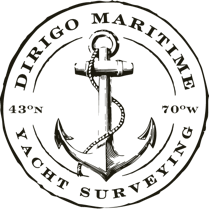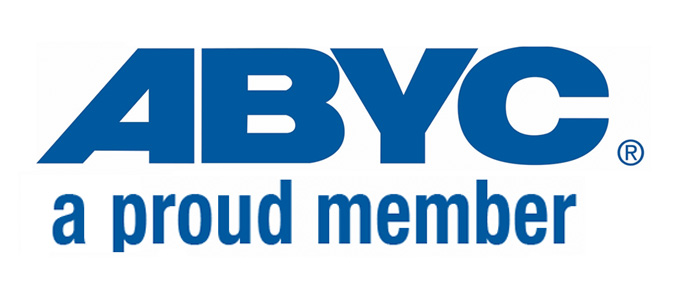

Marine Survey
Investing in a marine survey will give you peace of mind that you are not overpaying for your boat – but most importantly – that while you are enjoying a day out on the water with family and friends, that you done the due diligence necessary to ensure a safe return to harbor. Check out the options below to see which marine survey is right for you.
Types of Marine Surveys
Expand the fields below to learn more about the different types of marine surveys.
Pre-Purchase (Condition and Value) Survey
The most common and comprehensive report is the pre-purchase, or often called condition and value survey (C&V). This survey is highly recommended when considering the purchase of either a new or used vessel. Investing in a marine survey will give you peace of mind that you are not overpaying for your boat, it is fit for its intended use, you have done the due diligence necessary to ensure return to safe harbor and most importantly are making an informed purchasing decision.
 The Pre-Purchase Survey is a thorough and comprehensive inspection of the vessel and on board systems through non-destructive and non-invasive methods. The vessel will be examined for compliance with mandatory United States Code of Federal Regulations (CFR), Title 33 and Title 46 regulations, USCG regulations, the voluntary recommendations of the American Boat and Yacht Council (ABYC), and the National Fire Protection Agency (NFPA).
The Pre-Purchase Survey is a thorough and comprehensive inspection of the vessel and on board systems through non-destructive and non-invasive methods. The vessel will be examined for compliance with mandatory United States Code of Federal Regulations (CFR), Title 33 and Title 46 regulations, USCG regulations, the voluntary recommendations of the American Boat and Yacht Council (ABYC), and the National Fire Protection Agency (NFPA).
We recommend scheduling for the vessel to be hauled out of the water allowing for inspection of the wetted surfaces, through hulls, and underwater machinery. The bottom of the vessel will be visually inspected and sounded with phenolic techniques to discover any possible structural deficiencies, prior damage, or osmotic blistering. With the vessel out of the water we are also able to inspect the rudder, prop, prop strut and cutlass bearing for possible wear or damage.
A typical Pre-Purchase Survey will include:
- Survey scope & general vessel information confirming hull identification number and registration
- Exterior hull inspection
- Deck & superstructure inspection
- Relative moisture testing where and when applicable
- Interior & bilge inspection
- Machinery space inspection
- Helm & navigation electronics inspection
- Steering system inspection
- Propulsion inspection, including sea trial
- Safety equipment inspection
- Electrical inspection
- Plumbing inspection
- Current market value, based on BUC values and similar vessel/location research
- Replacement value
A Pre-Purchase Survey requires a full day so please plan accordingly and have your vessel in ship shape condition so we can be as thorough as possible.
Insurance and Appraisal Reports
When you purchase a boat – whether bowrider, center console, sportfish, trawler or sailboat – a pre-purchase survey is performed before final price and financing is determined. If a purchase occurs without a survey, the new owner will often learn that to gain insurance you must in fact have a current report of vessel condition and appraised market value including a replacement cost from a certified marine surveyor. If your new boat is financed in any way it is likely that a survey be need to be performed before money is lent or insurance is underwritten.
The insurance survey should not be confused with the pre-purchase survey. While the pre-purchase survey is a comprehensive report of the vessels condition the insurance survey is focused on the overall vessel condition with a focus on safety to help an underwriter assess risk. An insurance survey will determine if the vessel is fit for the intended use and conditions of the new buyer, and will also include the fair market value and replacement cost. Most insurance companies require an insurance survey every 3-5 years for recreational vessels while commercial vessels like lobster and commercial fishing boats require safety and insurance inspections more frequently.
After making an improvement to your vessel, you should also consider investing in an insurance survey. If for example, the owner of a 36’ Sabre sailboat replaced the 20 year old diesel engine or the standing rigging you should most certainly have that documented in an insurance survey, this will update the fair market value (which will increase significantly with such an improvement) and can be used to protect the value in case of a claim or loss.
Commercial Vessel Survey
Damage Inspection
Unfortunately boating accidents happen, whether a soft or hard grounding, a bump in the marina, snow damage, fire, or submersion, your insurance company is going to need a professional inspection and report of the damage. Most often our expertise is utilized by the insurance company themselves to substantiate the findings of the insurance adjustor, prepare a repair estimate and sometimes investigate the cause of loss. In some cases, we provide a second opinion for the boat owner that is involved with an insurance claim to assure the boat is repaired to pre-casualty condition. Capt. Chris Avallone has been involved in the resolution of hundreds of marine casualty situations throughout his tenure as the office manager of a large SeaTow franchise. This experience has provided Chris with unique insight into potential causes of marine casualty, the potential scope and depth of the damage and the procedures required for a complete repair. As the repair from a casualty can be a lengthy process we are able to oversee this process to mitigate any further damage and assure the repair is performed in accordance with standards set forth by the American Boat and Yacht Council (ABYC), the Federal code of Regulations, Coast Guard and the National Fire Protection Agency. When inspecting vessel damage, Chris, an ABYC Certified Surveyor with specialized marine accident investigation training will pay very close attention to the visible damage, and also to every system that could be affected (even minutely) from an impact, grounding, fire, or other mishap.
Preparing for a Survey
The most important part of preparing for a survey is assuring to the best of your ability that the vessel is in shipshape. This goes for every type of survey that we offer, whether a pre-purchase, insurance, or appraisal survey it is imperative that excess belongings be removed, and the vessel is free of clutter, tools, fishing gear and anything that is not part of the pre-discussed survey. A clean uncluttered vessel is far easier for us to inspect as we will have uninhibited access to the systems we need to view. Our inspections are non-destructive and non-invasive- If there are any limited access areas you suspect warrant further investigation please arrange for a qualified technician to provide the necessary access before the survey has begun. Our goal is to provide you with an accurate and thorough inspection, as well as address and try to answer any questions you may have. Please take a look at the list below for some quick points that will help with the surveying process.
- The vessel must be as neat and clean as possible
- Make sure that everyone is on board with the schedule.
- Vessel Owner must be aware of the survey date
- Marina or boatyard must be made aware of the scheduled survey date and that we are performing the survey
- Both buyer and seller brokers
- Yard if a haul out for bottom inspection is scheduled
- If a sea trial is performed you must have the owner or arrange for a Professional Captain to pilot the vessel.
- Contact numbers for both the buyer and the seller
- Ignition keys, keys to locked compartments, must be available. Please remove any combination locks before the scheduled survey
- You must have the ship’s papers on board, a legible copy of the registration and documentation is required.
- Both AC and DC voltages should be available on the vessel where applicable
Both the pre-purchase and insurance/financing surveys determine the vessel’s current market value and a replacement value. The current market value of a vessel is based on the selling prices of comparable models, condition and their location. The replacement value indicates the cost of a new vessel of the same make/model with similar equipment produced by the same manufacturer.
Our policy at Dirigo Maritime is to thoroughly survey and report on every vessel as if it were our own.


